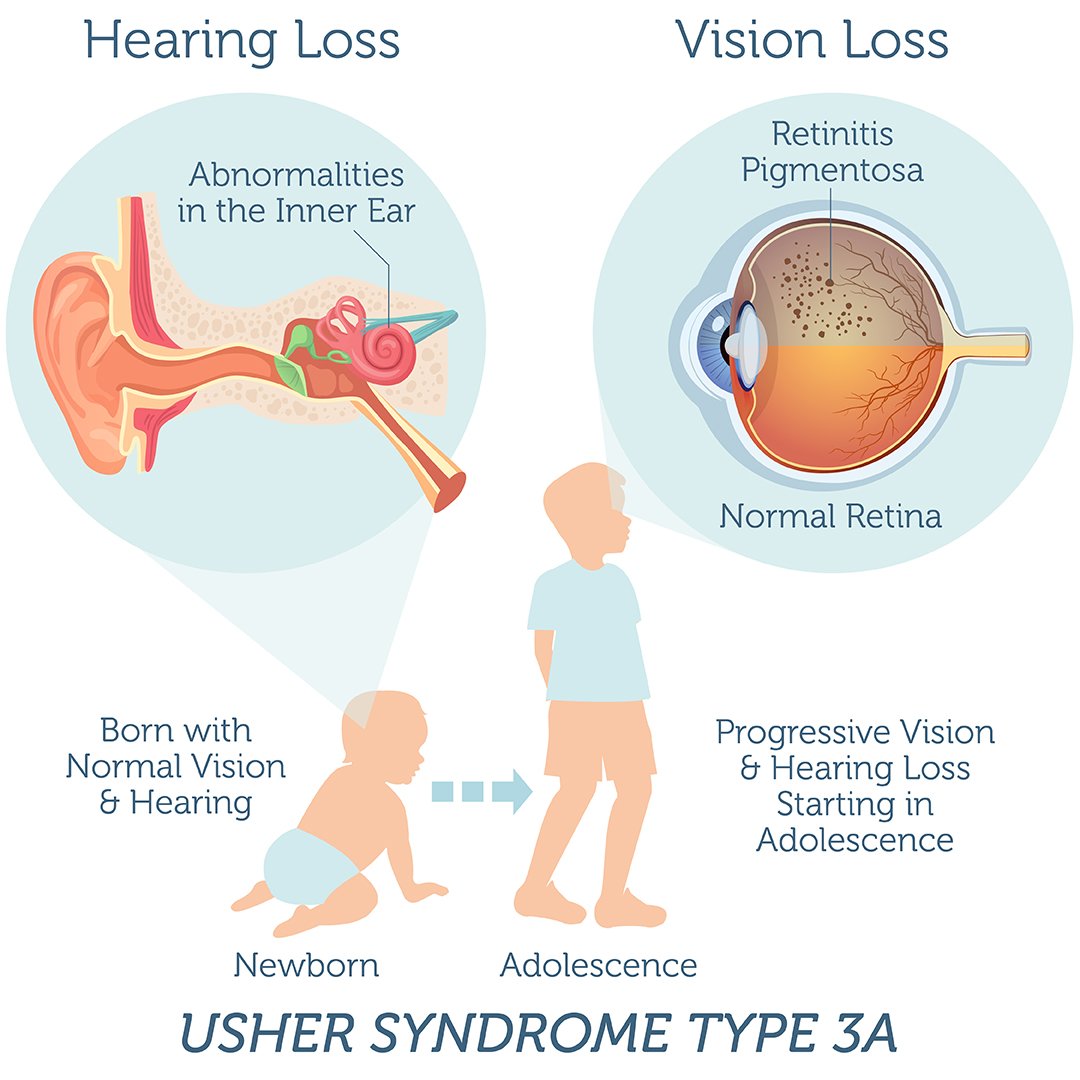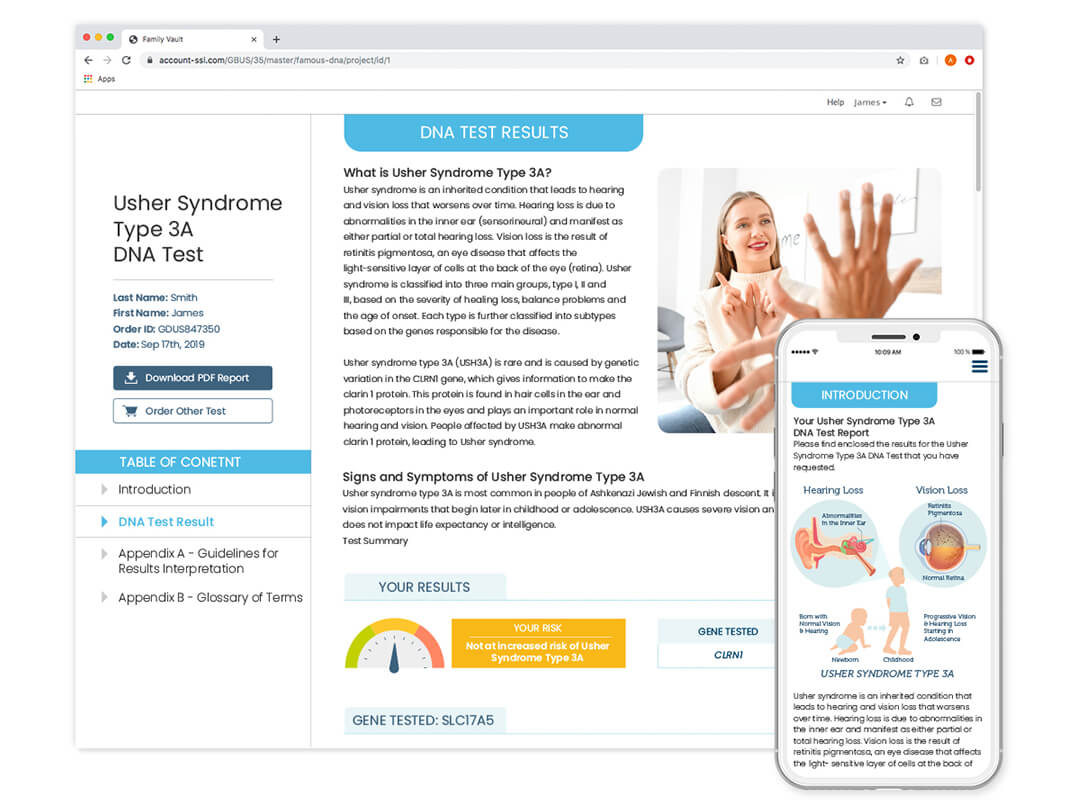Usher Syndrome 3A
Are you a genetic carrier for Usher Syndrome? Find out with this DNA Test.
- Detects the CLRN1 gene variant linked to Usher Syndrome Type 3A
- Linked to Usher syndrome in individuals of Ashkenazi Jewish descent
- Carrier screening test intended for couples who are planning to become pregnant
- 100% private and confidential online results
Already have DNA markers? Sign in and upload your data to view results.
Need to take the DNA Test? Order our easy-to-use swab kit.
Detailed Description
Usher syndrome is an inherited condition that leads to hearing and vision loss that worsens over time. Hearing loss is due to abnormalities in the inner ear (sensorineural) and manifest as either partial or total hearing loss. Vision loss is the result of retinitis pigmentosa (RP), an eye disease that affects the light-sensitive layer of cells at the back of the eye (retina). Usher syndrome is classified into three main groups based on the severity of healing loss, balance problems and the age of onset designated type I, II and III. Each type is further classified into subtypes based on the genes responsible for the disease.
Usher syndrome type 3A (USH3A) is rare and is caused by genetic variation in the CLRN1 gene, which gives information to make the clarin 1 protein. This protein is found in hair cells in the ear and photoreceptors in the eyes and plays an important role in normal hearing and vision. People affected by USH3A make abnormal clarin 1 protein, leading to Usher syndrome.
Take this test to find out whether you are a genetic carrier of the CLRN1 variant and are at risk of passing it to your children. This is intended to be a carrier screening test for couples who are considering to start a family.

The Genetics
Usher syndrome type 3A is caused by genetic variation in the CLRN1 gene, which gives instructions for the clarin 1 protein involved in hearing and vision. People with the variant produce a defective clarin 1 protein, leading to the hearing and vision loss associated with the disease.
USH3A is inherited in an autosomal recessive pattern, which means two defective copies of the CLRN1 gene must be inherited in order for the disease to manifest.

Variant Tested
This test looks at one genetic variant of the CLRN1 gene linked to Usher Syndrome Type 3A, which becomes apparent later in childhood or adolescence..
- rs111033258 A (N48K)
Understanding your carrier status will help you understand the risk of passing on Usher syndrome to your children. While a carrier do not typically show signs and symptoms of the condition there is a 25% chance the child will inherit the disease if both parents are carriers.
Signs and Symptoms
Characteristic symptoms include
- Hearing loss that appears in late childhood or early teens, usually leading to profound deafness by middle age
- Gradual vision loss (retinitis pigmentosa)
- May have balance issues
- Life expectancy and intelligence are not affected
How It Works
Step 1: Sign up for a free Genebase account.
Step 2: Upload your DNA markers to Genebase.
Step 3: Login to your account to access your results when they are ready.


